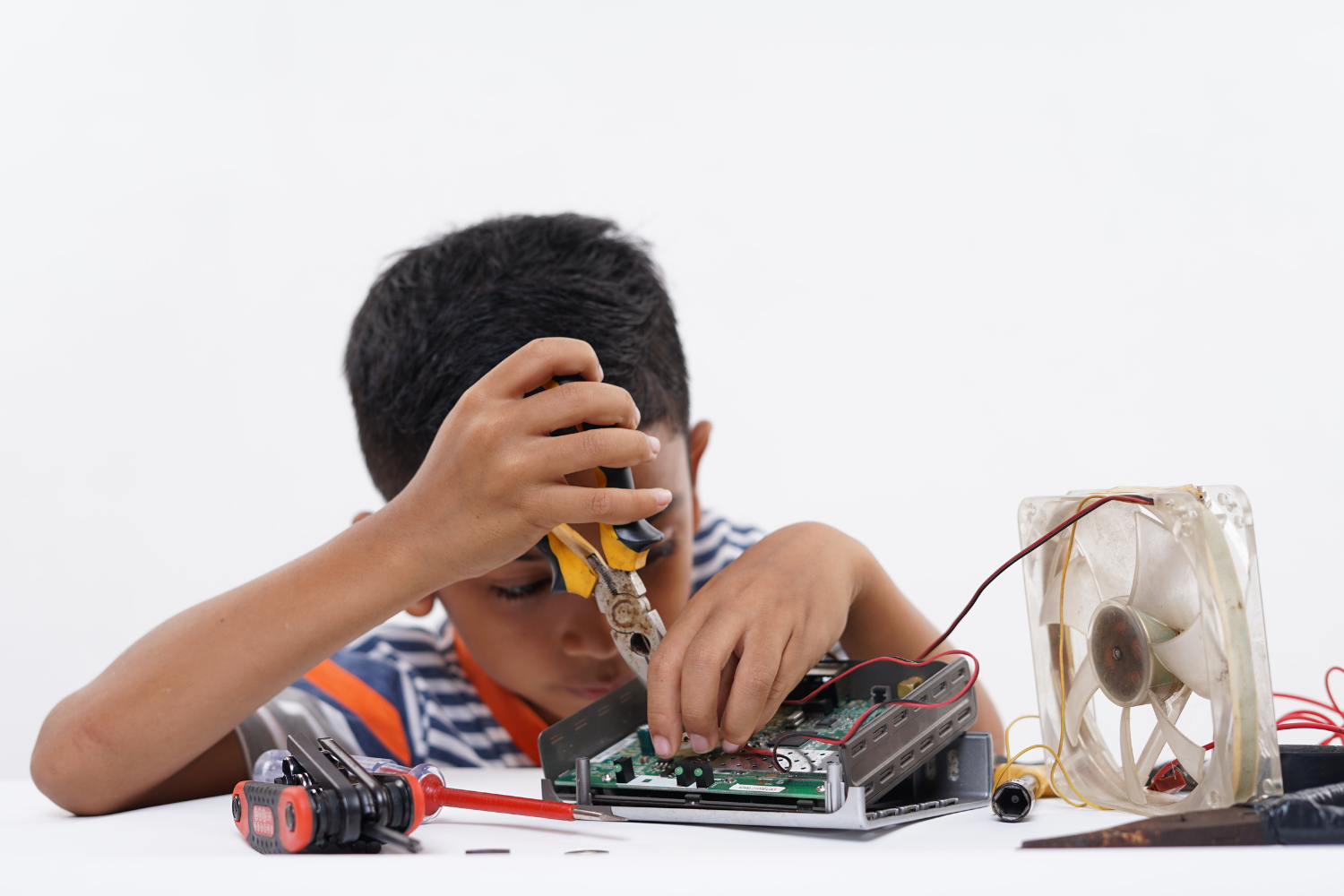John Taylor Gatto, a renowned educator and best-selling author, said that "schools were dangerous places for children."
Having been educated through the public school system, I can say with certainty, as I’m sure you can too, that my best years of learning were wasted.
Not only were they wasted, but as a public-school student, I was exposed to all sorts of immoral behaviors and mediocre influences in my life.
It wasn't a great beginning.
My Twelve-Year Jail Sentence
In my "twelve-year jail sentence," as Gatto likes to call it, I certainly never learned that a "preposition is a word which governs a noun or pronoun and connects it to anything else in the sentence or clause" (definition according to Mr. Gwynne, author of Gwynne's Grammar).
I memorized not a single piece of poetry, nor did I ever learn my own country’s history with any coherency, let alone other histories of the world.
(I did read a lot of classic books, but not in school. My father supplied me with those, and they were my saving grace.)
It would have been helpful to have learned the above subjects during those 12 wasted years and learned other subjects too, which are essential to living a good life.
For example, learning Aristotelean logic when I was young would have given me the ability to see through the kind of propaganda that flies in our faces every day and deceives us to believe in and do things we would not otherwise believe in or do.
“Modern propaganda is a consistent, enduring effort to create or shape events to influence the relations of the public to an enterprise, idea or group.”
Having a better understanding of world history would have taught me that history repeats itself. I would have known back then to look to the past to understand where we have been, where we were then, and where we were headed.
The Six Purposes of Schooling
Fast forward many years later to my discovery of the six purposes of government schooling that John Taylor Gatto uncovers for us and guess who was livid?
I wasn’t alone.
Like many of us, I realized that I had been cheated of a real education, and there is nothing more infuriating than discovering that you have lost the best years for training your mind to a dumbed-down, nefarious government school program.
I should also tell you of something else that happened to me when I was in public school which has been an impediment throughout my life. As a young kindergarten enrollee, I had developed a false belief that I was not very smart!
This may sound strange, but it happens to be fairly common for children who are almost a year younger than the oldest child in the classroom but expected to do the same level of work.
Unfortunately, beliefs we form from childhood experiences become like deep grooves in our minds, and it can take a lifetime to polish them out, which is why we need to consider carefully the way we are raising our children.
“School is a twelve-year jail sentence where bad habits are the only curriculum truly learned. I teach school and win awards doing it. I should know.”
5 Reasons for Homeschooling
In this brief summary of my unfortunate government school years, did you notice that I just gave you five reasons why concerned parents elect to homeschool their children? If not, let me summarize them for you as it’s important to reflect on them:
Concerned parents want to give their children a real education where their children learn, at the very least, how to read well, write well, and speak well.
They want to give their children proper training in morality and what it means to be an ethical and civilized human being.
They want their children to understand that mediocrity is not good enough; they must learn to strive for excellence.
They don't want their children exposed to early sexual influences, drugs, and perverse ideologies.
They want their children to have self-confidence and as much self-knowledge as they can acquire during a well-spent youth.
These are the five most common reasons for homeschooling, but there are two more that are gaining momentum. Crime is a big problem in schools today, and many parents are not putting their kids into public school or are taking their children out of public school because of safety issues.
I mentioned this to a group of parents about 15 years ago, and one parent thought I was being extreme. But I wasn't. I was just on top of the statistics earlier than they were; now, I believe it is common knowledge that schools are not safe places for kids.
We also have health concerns with the government schools now mandating a new drug for children that many parents feel is unsafe, despite the propaganda, because the ten or twelve years it takes to safely test a new drug is still in the future.
We have many new homeschoolers now because of the mandates which I find interesting.
Now I’ve given you seven reasons why concerned parents choose to homeschool. Here’s one more that seldom gets mentioned, but that I believe is the most important because it encompasses all the rest:
Your children were born with a God-given potential that they will realize throughout the course of their lives if, and only if, they’re given a fair chance.
If you want your children to reach their potentials, the best chance you have to help them is to intelligently homeschool your kids. Don’t let them waste their best years of learning in public school.
Educate your children well by doing it yourself or hiring competent tutors to teach your kids. One-on-one instruction is superior to class instruction which is why the aristocracy were always tutored.
What’s vital to remember is that an education tailored to one is the education of people who lead themselves, and may even lead others, as opposed to being led.
Let me conclude by saying this: living in a dumbed-down world is frightening. Dumbed-down people are easy to manipulate, and Americans may be the most manipulated people on this planet today.
Keep your kids out of public school and homeschool them so they can grow up to be leaders who are intelligent, ethical, critically thinking people.
Mediocrity will not do.
*****
To learn about John Taylor Gatto’s Six Purposes of Government Schooling, use this link.
Don’t miss our free download, Ten Books Every Well-Educated Child Should Read.
For parents of children under age seven who would like to prepare their child for social and academic success, please begin with our online course, Raise Your Child Well to Live a Triumphant Life.
Become a Smart Homeschooler and give your child a first-rate, screen-free education at home using the Smart Homeschooler Academy Curriculum and teaching methods taught in the program. Join the Smart Homeschooler Academy online course and feel secure knowing that you have what you need to homeschool successfully as well as live ongoing support from Elizabeth.
Elizabeth Y. Hanson is an Educator, Homeschool Emerita, Writer, and a Love and Leadership Certified Parenting Coach with 20 years of experience working in children’s education.
Utilizing her unusual skill set, coupled with her unique combination of mentors, Elizabeth has developed her own comprehensive understanding of how to raise and educate a child. She devotes her time to helping parents get it right.
☞ Disclaimer: This is not a politically-correct blog.




























































































